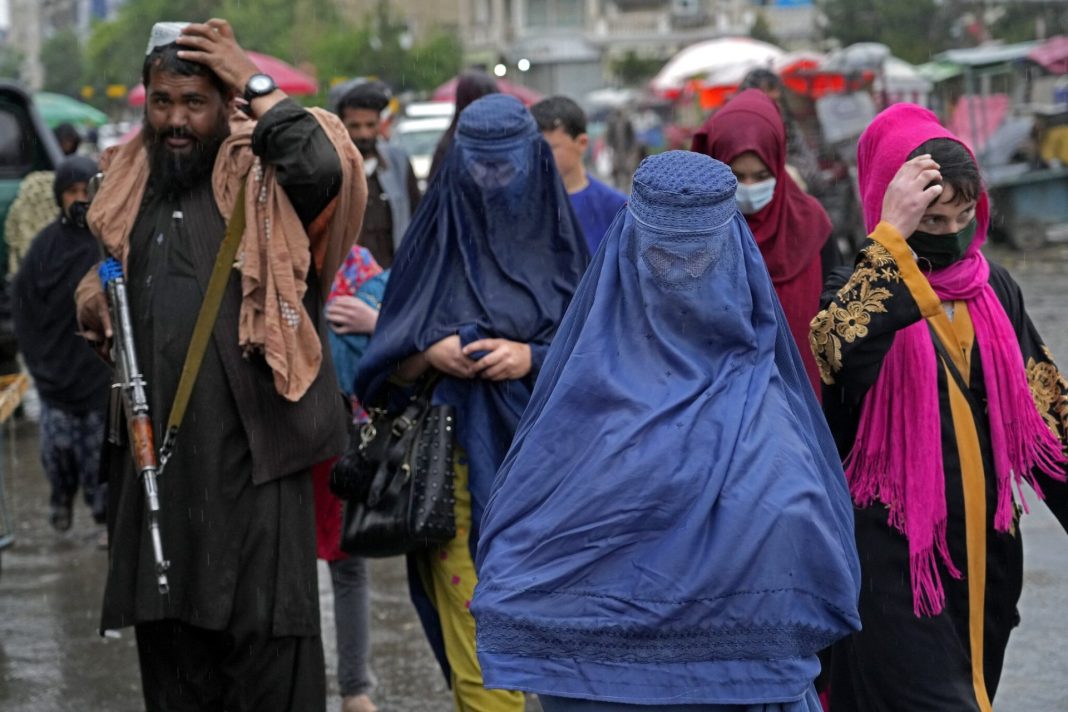The report detailed the “lack of clarity” on the legal mechanisms in place for women to bring concerns about gender-based violence and which Taliban authority “is responsible for each action along the justice chain regarding such complaints”.
Many women seek “traditional” means of resolving the issues “because of fear of the [Taliban] de facto authorities”.
The report noted that complaints are predominantly dealt with by men, who often seek “mediation” instead of prosecution and trial.
The report also focuses on restrictions of rights for women, specifically noting that the Taliban “continue to enforce and promulgate restrictions on women’s rights to work, education and freedom of movement”.
It mentions increased enforcement of the requirements that women wear a hijab and travel with a guardian — either a husband or male blood relative.
The report cites an example where three female health workers were detained because they went to work without being accompanied by a mahram, or a person with whom marriage would be forbidden.
The report says significant actions have been taken to enforce the hijab decree, and Taliban authorities have taken measures “involving arbitrary arrests and detentions and verbal warnings of a substantial number of women and girls accused of not wearing proper hijab”.
The United Nations Assistance Mission in Afghanistan (UNAMA), which published the report, announced it is “looking into allegations of instances of ill-treatment, longer periods of detention, incommunicado detention and demands for payment of money in exchange for release.”
“Enforcement measures involving physical violence are especially demeaning and dangerous for Afghan women and girls, carrying a stigma that places them at even greater risk,” the report added.
The report also details “targeted attacks against Hazaras”, an ethnic minority that has long faced discrimination in the region.
Additionally, it raises concerns about the “forced expulsion of Afghans from Pakistan”, noting that this decree particularly affects Afghans who have fled the country after the Taliban took control.
In August 2021, the Joe Biden administration withdrew all troops from Afghanistan, concluding that US involvement in the region was not sustainable and not producing any positive effect on the region. Soon after the US withdrawal, the Taliban took control swiftly and has slowly begun to enforce restrictive policies on its people, specifically hampering women’s rights and freedoms in the region.
